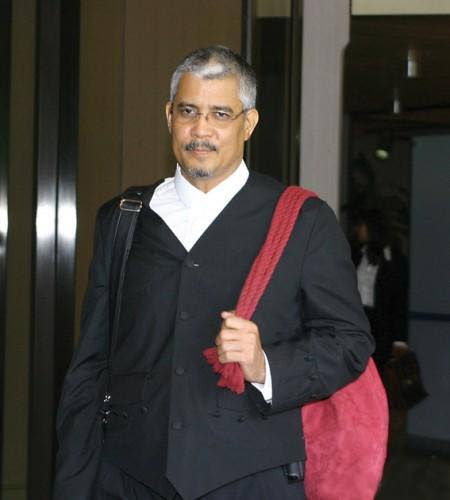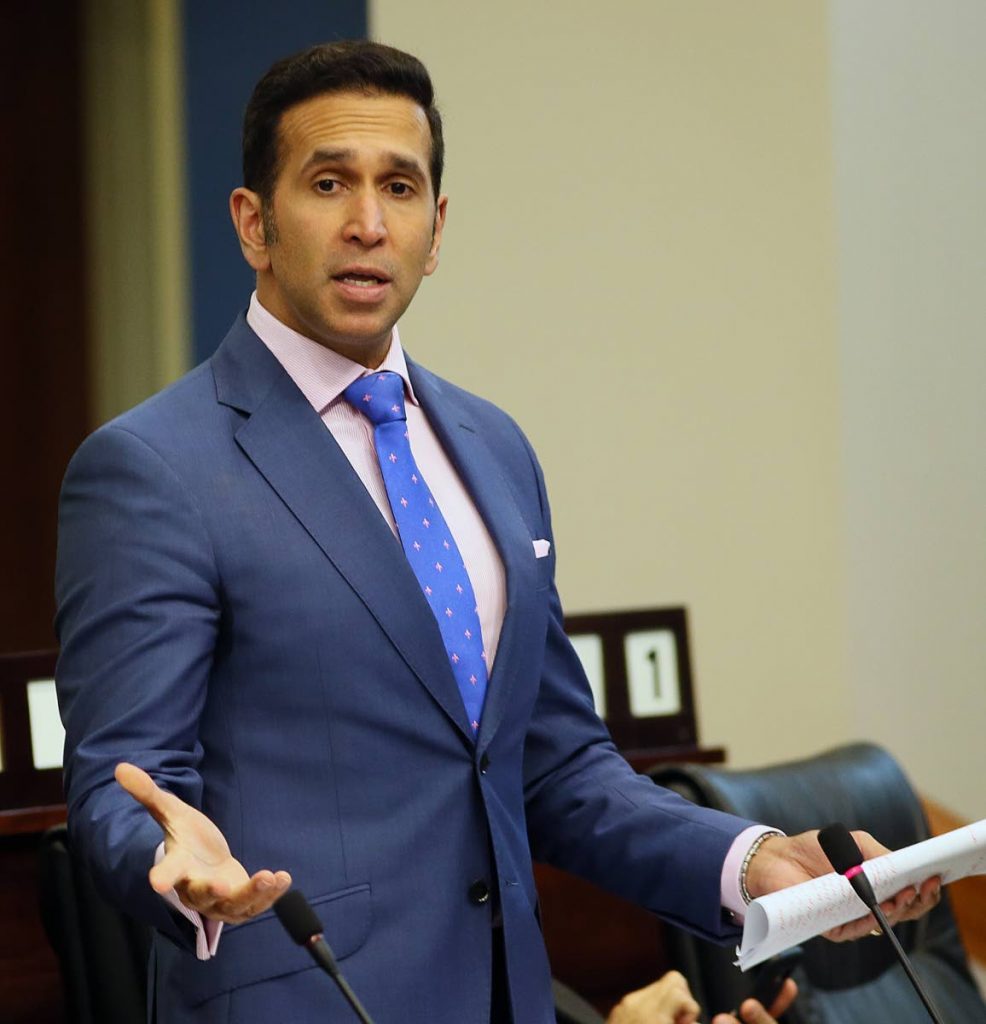Hold your hand

PRESIDENT of the Law Association Douglas Mendes, SC, has written to Attorney General Faris Al-Rawi questioning why the association was not consulted on proposed legislation that impacted the administration of justice.
He is also proposing that Al-Rawi holds his hand on progressing with certain pieces of legislation, as he raised serious concerns.
In separate letters, both dated and sent on Friday, Mendes referred specifically to the Miscellaneous Provisions (Supreme Court of Judicature and Children) Bill, 2018, which, among other things, seeks to increase the complement of judges; the Criminal Division and District Criminal Traffic Courts Bill No 6 of 2018; and the Payment into Court Bill no 9 of 2018.
He also reminded Al-Rawi of the practice of consulting with the association on any proposed bills.
According to Mendes, the Miscellaneous Provisions (Supreme Court of Judicature and Children) Bill, 2018 – which was passed in the Lower House in June 6 – “has far-reaching consequences for the legal profession and the administration of justice and it is quite unfortunate, as has been the case with several prior bills, that the same was not dispatched to us for consultation, it only having come to our attention on the June 27, 2018.”

The association is expected to provide Al-Rawi with its comments by the coming Friday.
In the longer of the two letters, sent hours after the first, Mendes raised several concerns about the Criminal Division and District Criminal and Traffic Courts Bill No 6 of 2018 and the Payment into the Court Bill No 9 of 2018.
He said the first piece of legislation, if brought into force, will empower the court executive administrator (CEA) to appoint a deputy on contract and not a post to be filled by the Judicial and Legal Services Commission (JLSC).
He also said the creation of masters, as proposed in the bill, “appears to give them jurisdiction over the liberty of the citizen, a jurisdiction which was clearly excluded by the Supreme Court of Judicature Act.” According to Mendes, the blending of the jurisdiction of the magisterial courts and the Criminal High Court was not a task that ought to have been taken lightly. Mendes warned that “this will surely lead to uncertainty, arbitrariness and the appearance of forum selecting.”
“This unwieldy result is directly inimical to the rule of law.”
He said it was unclear how a concurrent jurisdiction was to be exercised and the bill offered no explanation on how it would work in practice. Mendes expressed further concern for what appeared to be “unfettered” discretion to determine the case types and offences appropriate for “special criminal court procedure” being given to the Chief Justice.
He also questioned whether the legislation required a special majority.
Mendes said if the Payment into the Court Bill was passed, it would become possible for the CEA to select the deputy as a co-signatory on the custodial bank accounts.
“The potential for abuse is obvious since the deputy court executive administrator would be beholden to and not independent of the person who appointed him or her, that is, the court executive administrator. In such circumstances the requirement of two signatures as a financial safeguard is illusory and further, marginalises the established statutory role and function of the registrar of the Supreme Court.
He also expressed concern that the bill sought to introduce powers to deal with public moneys without the oversight of the Exchequer and Audit Act and without people being appointed accounting officers for the purpose of the legislation.
“Furthermore, the mere fact that the Auditor General is to be given responsibility to audit the custodial bank accounts is of little comfort and offers little oversight since it is reported that the Judiciary has not submitted financial reports to the Auditor General since 2014.”
He also noted that the bill followed the implementation of the current court pay system but said the transaction fee proposed “must be lawful.” At present there is no jurisdiction to order a person paying maintenance to pay a transaction fee, Mendes said, adding that there have been no amendments to legislation that governs the payment of maintenance to pay such a fee.
“It mattes not if the fee is nominal.”
On Friday, some judges and Opposition Senator Gerald Ramdeen raised concerns about the Miscellaneous Provisions (Supreme Court of Judicature and Children) Bill, 2018, also questioning, specifically, why a significant expansion of the Judiciary was being contemplated at a time when existing problems are not being addressed.
Mendes referred to some of the problems. He said the facilities in which the courts operate in TT “are less than desirable and yet additional resources are being contemplated for the establishment of the Criminal Division.”
“There are Magistrates’ Courts which are desperately in need of repair and resources.
“The Hall of Justice in Port of Spain does not have a functioning air condition system, photocopiers, printers, sufficient paper, functioning security scanners, functioning toilet facilities among other issues which hamper the administration of justice.”
Mendes said the proposed legislation has wide implications and need to be considered thoroughly. The landscape of the Courts and consequently, the very administration of justice is being changed drastically, with severe impact on the profession and the public,” he said, as he called for consultation with the association.


Comments
"Hold your hand"